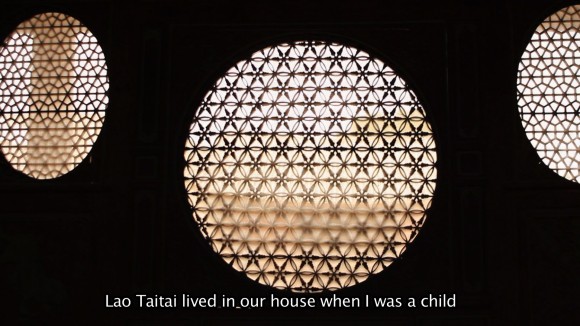 This semester, ACERT organized two new prizes to call attention to some of the innovative and exciting work happening at Hunter in the area of digital pedagogy: a Faculty Assignment Prize and a Student Digital Writing Prize. Both prizes were awarded at an event kicking off our May 3rd Day of Digital Pedagogy at a lively lunchtime event with lots of discussion. ACERT would like to give special thanks to the Provost’s office for funds for the student prize and the prize ceremony, and to the judges, Jeff Allred, Gina Cherry, Wendy Hayden, Dennis Paoli, and Ky Woltering, for their hard work.
This semester, ACERT organized two new prizes to call attention to some of the innovative and exciting work happening at Hunter in the area of digital pedagogy: a Faculty Assignment Prize and a Student Digital Writing Prize. Both prizes were awarded at an event kicking off our May 3rd Day of Digital Pedagogy at a lively lunchtime event with lots of discussion. ACERT would like to give special thanks to the Provost’s office for funds for the student prize and the prize ceremony, and to the judges, Jeff Allred, Gina Cherry, Wendy Hayden, Dennis Paoli, and Ky Woltering, for their hard work.
We have created a slideshow featuring work by the prize winners. Here, we would like to share with you a small sample of the winning projects with links for further exploration.
Student Digital Writing Prize
First Prize: Sandra Prieto
Our first place winner is Sandra Prieto, whose extensive online portfolio of infographics and other multimodal texts, originally developed for a course in Information Technology and Research in the Graduate Social Research Program in the Department of Sociology at Hunter and extended through other courses in that program, deeply impressed our panel of judges. The sheer range and high level of quality is remarkable (see, for example, the case study of the #America hashtag on Instagram or the infographic/slide presentation on workplace accidents). The overarching effect of the site is to remind us of how far our students can go in collating their intellectual work and presenting it in coherent and compelling ways to the public.
Second Prize: Nicole Krishtul
Nicole’s winning entry, “Burkean Consubstantiality: A Study of Arguments of Identification and Individuality in Brookdale Dorm Rooms,” grew out of an assignment (itself an award-winner, as we shall see, from Sean Molloy) for English 120. Krishtul transformed a traditional essay on the work of literary critic Kenneth Burke into a compelling three-minute video published via YouTube. Judges were impressed with the project’s combination of disciplinary rigor (explaining Burke’s “consubstantiality” in under three minutes is no mean feat!) with an engaging, accessible mode of address well-suited to the medium. And it’s interesting to note that Nicole’s film has reached more than 8,000 viewers since it has been published, a testament to its quality and appeal.
Third Prize: Lingyun Zheng
Lingyun’s cinematic essay, “An Ill-fitting Coat,” produced for Prof. Shanti Thakur’s “Hybrid Documentary” course, is a lyrical exploration of her family history. The film weaves together still images, video footage taken by Zheng herself as a child, and touching voiceover narration to tell the story of her family’s migration from China to Burma in the 1940s to work in the mines. The judges noted the great sophistication of Lingyun’s combination of the grammar of cinematic narrative with the expository, first-person aspects of the essay form.
Honorable Mention: Gregory Rocco
Greg’s entry, “Wakeipedia: An Extended Reading of Page 1 of Finnegans Wake,” grew out of work for Prof. Nico Israel’s course on James Joyce. Greg drafted an extended blog post that examines the formidable first page of Joyce’s novel through three “digital humanities” lenses: an interactive map exploring the locations mentioned; an audiobook reading of the page; a set of annotations glossing obscure references; and a word cloud visualizing the page’s central terms.
Faculty Assignment Prize:
 First Prize: Erica Chutuape (Asian-American Studies)
First Prize: Erica Chutuape (Asian-American Studies)
Erica’s “Asians in the U.S. Final Media Project” has students translate research based on original research and fieldwork into compelling infographics, such as the one to the right (click on the image to see the full size infographic). The panel especially admired the clarity of Erica’s instructions to students and the careful scaffolding of the assignment over the course of the term.
Second Prize: Sean Molloy (English)
Sean’s “Three Minute Movie that Reimagines a Text Essay” has students transform a traditional essay into a short video (as seen in the winning entry by his student, Nicole Krishtul, above). Judges noted Sean’s investment in process, walking students through three stages of revision, and his emphasis on metacognition, having students write a reflective piece at the end to underscore the relationship between the very different forms and rhetorical modes.
Third Prize: Lisa Anderson (German)
Lisa’s “Advanced German Through Translation: Student Translators’ Websites” project is notable for its scope: much of students’ written work for the term was published on a site of their own design, sites which, taken together, encompass a wide range of styles, layouts, and emphases (see, for example, these sites by students Kate Kelley and Sarah Diehl). Judges were particularly impressed with Lisa’s clear, compelling rubric, which engaged them not only with how to publish their translations in the narrow sense, but why such publication and dissemination matters.




Congrats to winners! It was really a pleasure learning about your work.